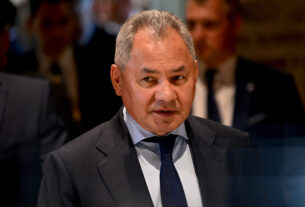Flows through the Russia-to-Germany Nord Stream pipeline will fall to about 20 percent capacity beginning Wednesday, Russian supplier Gazprom said Monday.
Flows will fall to 33 million cubic meters a day, about half of current amounts, which are only about 40 percent of the pipeline’s normal capacity. However, Kremlin spokesperson Dmitry Peskov said Russia is “not interested” in cutting off gas supplies.
Moscow has come under fire for halting or reducing gas deliveries to a dozen EU countries.
Russian President Vladimir Putin had previously warned of the Nord Stream drop, blaming the delayed return of a Siemens gas turbine from Canada; the turbine is now in Germany.
Germany’s climate and economic affairs ministry said in an emailed statement that under EU sanctions law, no exemption is required for the turbine to be sent back to Russia. “According to our information, there is no technical reason for a reduction in deliveries,” it said.
Ukraine has repeatedly decried Russia blaming delivery cutbacks on the turbine, saying Gazprom could send gas through pipelines running across Ukraine.
Oleksii Makeiev, Ukraine’s special envoy on sanctions, told POLITICO Monday that Berlin and Ottawa were wrong to give a sanctions exemption for the turbine, saying Russia is “using gas supplies as another instrument of pressure on Germany.”
Spot gas prices on the EU benchmark TTF hub rose slightly on the news, from €168 per megawatt-hour to €176/MWh.
Zia Weise contributed reporting.
This article is part of POLITICO Pro
The one-stop-shop solution for policy professionals fusing the depth of POLITICO journalism with the power of technology
Exclusive, breaking scoops and insights
Customized policy intelligence platform
A high-level public affairs network




